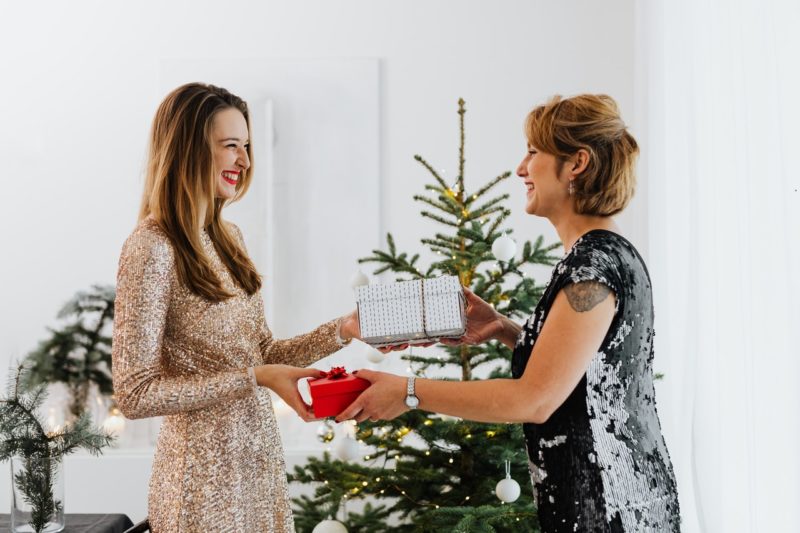The Love Language of Gifting – How to Master it?
Gifting can be a compelling way to show your loved ones how much you care for them. In most cases, it’s the best way to show how much a person means to you. Everytime you give someone a gift, the receiver’s happiness radiates within us. That’s why we keep doing it.
Some people are more action-oriented, others prefer words of affirmation, and others need gifts. If you’re unsure which love language your partner speaks, it’s essential to learn about it so that you can give them the love they need most.
What is the Love Language of Gifting?
A person’s love language is usually identified through self-reflection and questionnaires. Individuals tend to give gifts that resonate with their loved one’s love language. When it comes to gift-giving, people often have different love languages. This is based on the theory that each person interprets and responds to love uniquely.
Here are the some most common love languages:
- Words of affirmation: This person loves when others tell them how wonderful they are, express gratitude for what was given, or say kind words to them.
- Acts of service: This individual needs regular service actions. Such as filling up their water glass, preparing meals, folding laundry, etc., to feel appreciated.
- Receiving compliments privately or publicly: Some people like compliments. They might also like receiving compliments directly from friends or family via phone calls, text messages, etc.
- Gifts involving tangible objects are material goods: Having flowers or chocolates. It can be household stuff like a curtain, pillow cover, or kitchenware cheese boards too. Experiences like eating out together at a favorite restaurant. Time invested towards pleasurable activities like carpooling and more.
- Gifting beyond materialism: These people might find satisfaction in gifts without monetary value. But still fulfill the need expressed by the recipient.
How to Know a Person’s Love Language is a Gift?
- The physical representation of love is more natural and profound than words.
- Giving each other lovely, romantic gifts is one of your favorite “small things” about being in a relationship.
- You cherish anything a partner offers you, whether pricey or a roadside flower.
- Someone’s attention affects a lot when they give you a present.
- You enjoy being surprised because it makes you feel special.
- Getting a souvenir from a journey you weren’t part of is a sign of appreciation.
- You care about anniversaries, birthdays, and other gift-giving holidays. You’d be hurt if your partner didn’t buy you something special.
- You desire thoughtful, personalized gifts for special occasions.
- You can detect the difference between a generic and last-minute and thoughtful gift.
- When your lover remembers and fulfills a long-ago wish, you feel recognized and appreciated.
How to Master the Love Language of Gifting?
Love languages also vary from the stage of life to the stage of development. Infantilizing partners during infancy might need physical touch. At the same time, adults might prefer emotional expressions such as compliments or gifts. The more each side speaks in their loved one’s primary love language, the healthier the relationship.
- Appreciate the beauty of gift-giving: Think of picking out presents for your partner as a skill that needs to be cultivated. Make an effort to select products with some emotional attachment to them.
- Always be prepared for an occasion to give gifts: Do you have a history of forgetting important dates? Then using periodic reminders might be very helpful.
- Give one another a constant flow of inexpensive gifts: A gift might cost simply a few dollars at the local convenience store. Your sweetheart may find great value in even the most minor expressions of your affection that you give them.
- Don’t forget the keepsakes: Imagine you have to travel for work, especially to locations that your loved partner has never been. You should be sure to bring back some mementos to show them that you were thinking about them while you were away.
- Put some thought into each effort: A pearl that holds the memory of a mystical experience can be worth significantly. It will affect more than a flashy set of earrings or an expensive piece of technology.
- Create the most extraordinary occasion out of birthdays: Birthdays are the most popular occasions to give presents. Birthdays are possibly the most significant and essential since they are also the most personal.
- Consistency: Be consistent while speaking with folks who “speak” this language. Share gifts frequently each year.
- Cherish their responses: It’s possible that as time passes, you can forget how your partner felt about the presents you gave them. Maintain a log of their responses so you may determine what appeals to them the most.
- Seek help: If you’re unsure what to give your partner for the holidays, ask friends and family for suggestions.
- Give gifts to cheer up your partner when they’re feeling down: Showing how deeply you care for your partner can dramatically transform their day. Even if they are feeling down.
Misunderstanding of the Love Language of Gifting
There are a few misconceptions about the gifts of love language. It’s essential to be aware of them to communicate with your loved ones in the best way possible.
One common misconception is that people who give gifts based on their partner’s love language will always feel happy. This isn’t necessarily true, as happiness may or may not result depending on how well the gift aligns with the recipient’s values.
Another misunderstanding is that giving gifts based on one’s own love language shows care and compassion. Again, this isn’t always accurate. Considering another’s preferences can lead to conflicts instead of interpersonal interactions.
The final misconception relates to how frequently we should give our loved ones gifts based on their love language. The general consensus seems to be that providing gifts based on another person’s love language once a week is more than enough.
When it comes to gift giving, it’s important to know what your partner, friend, or someone likes, regardless whether it’s a physical gift or words of affirmation.
For instance, if you’re going to give your partner a gift, who has been eyeing a good wooden charcuterie board to add to your kitchen, then go for it. Or perhaps, you can go with other unique housewares especially if your partner is obsessed with buying kitchen accessories.
But again, this depends on each couple’s relationship dynamics and personal preferences. After all, communication is key when figuring out someone else’s beloved “love language.”
Wrap Up
Gifting is an essential part of any relationship. It doesn’t matter if you’re in a committed relationship, a friendship, or a family. When you give gifts, you’re expressing your love for the person in a way that is special to them. And chances are, they’ll love it just as much!
We have explored the love language of gifting and how you can master it to ensure that your gifting experience is as fulfilling. We have also provided a few tips on identifying your love language and tailoring your gifting experience to match that love language.














